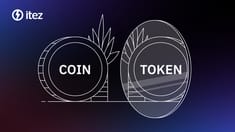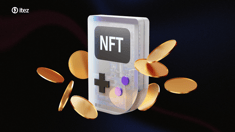
Introduction to Cryptocurrency Trading Courses
Cryptocurrency trading has taken the financial world by storm, providing exciting opportunities for both novice and experienced investors. As the popularity of digital currencies continues to rise, many individuals are looking to learn how to trade efficiently and profitably. The best way to master cryptocurrency trading is through structured learning, and that’s where cryptocurrency trading courses come in.
These courses are designed to teach you the fundamentals of the crypto market, trading strategies, and tools used by professional traders. Whether you're looking to supplement your existing knowledge or start fresh, taking a well-rounded course can be the key to success in the world of crypto trading.
Why Take a Cryptocurrency Trading Course?
The world of cryptocurrency can be overwhelming for beginners. With thousands of cryptocurrencies available and a market that operates 24/7, it can be challenging to know where to start. A well-structured trading course can help you understand the key concepts and give you the skills you need to make informed decisions.
Who Should Consider a Crypto Trading Course?
While cryptocurrency trading courses are beneficial to anyone interested in entering the market, certain groups of people will benefit most from structured learning. Here are some individuals who should consider taking a crypto trading course:
1. Beginners Who Are New to Crypto Trading
2. Investors Looking to Diversify
3. Those Interested in Day Trading or Active Trading
4. Experienced Traders Wanting to Specialise in Crypto
Key Elements of a Good Cryptocurrency Trading Course
Core Topics Covered in Trading Courses
A good cryptocurrency trading course should cover a wide range of topics that are essential for success in the crypto market. These core topics will ensure that you have a well-rounded understanding of the crypto trading ecosystem.
1. Introduction to Cryptocurrency and Blockchain
The foundation of any good course will start with an introduction to cryptocurrencies and blockchain technology. You’ll learn about the history of digital currencies, how blockchain works, and why cryptocurrencies have gained popularity in recent years.
2. Understanding Crypto Exchanges and Wallets
To trade cryptocurrencies, you need to understand how exchanges work and how to use digital wallets. A good course will teach you how to choose a reliable exchange, set up a wallet, and securely store your assets. You’ll also learn about the different types of exchanges and trading platforms available.
3. Technical Analysis and Charting
Technical analysis is one of the most important skills for any crypto trader. A quality course will teach you how to read charts, identify key indicators, and analyse price movements. You’ll learn how to spot trends and use technical tools like moving averages, RSI, and MACD to make informed trading decisions.
4. Risk Management Strategies
Managing risk is crucial in the volatile world of cryptocurrency. A good course will teach you how to use tools like stop-loss orders, position sizing, and portfolio diversification to manage risk effectively. You’ll also learn how to avoid emotional trading and make decisions based on logic rather than fear or greed.
5. Crypto Trading Strategies
There are various strategies for trading cryptocurrencies, from long-term investing to day trading and swing trading. A good course will cover a variety of strategies and help you choose the one that best suits your risk tolerance, time commitment, and financial goals.
6. Understanding Market Sentiment
Crypto markets are heavily influenced by news and social media, making market sentiment a critical factor in price movements. A good course will teach you how to track sentiment and incorporate it into your trading strategies. You’ll learn how to use tools like sentiment analysis to predict potential price changes.
7. Regulations and Legal Considerations
Understanding the regulatory environment for cryptocurrency trading is essential, especially as governments worldwide begin to implement new rules. A good course will cover the legal aspects of trading and ensure you are aware of any relevant regulations, taxes, and compliance issues.
Skills You’ll Learn from a Crypto Trading Course
By completing a cryptocurrency trading course, you’ll gain a set of valuable skills that will help you navigate the crypto market with confidence. These skills will help you make better decisions, manage risk, and maximise your profits.
1. Analytical Skills
You’ll learn how to analyse market data and make decisions based on facts rather than emotions. This includes mastering technical analysis, using trading indicators, and understanding market trends.
2. Risk Management Skills
Effective risk management is key to surviving and thriving in the crypto market. A course will teach you how to use strategies like stop-loss orders and diversification to protect your investments.
3. Trading Strategy Development
You’ll learn how to develop your own trading strategy based on your goals, risk tolerance, and available time. This will allow you to tailor your approach to your personal preferences and trading style.
4. Market Timing
Learning how to time your trades is an essential skill for any trader. A good course will teach you how to recognise entry and exit points, allowing you to take advantage of market movements.
5. Emotional Control
One of the biggest challenges in trading is controlling your emotions. A crypto trading course will teach you how to stay calm during market fluctuations and make decisions based on logic rather than fear or greed.
Top Cryptocurrency Trading Courses in 2025
Now, let's take a look at three popular courses that will be relevant for traders with different levels of knowledge and skills in 2025.
Course 1. Bitcoin and Cryptocurrencies on edX
Key Characteristics:
Launched by: edX, with instructors Rustie Lin and Gloria Wang, known for their expertise in digital currencies.
Where to Take: Available on edX, a platform offering courses from top universities and institutions.
Cost: $99 for a 6-week duration, including a certificate upon completion.
Duration: 6 weeks, designed for a structured learning pace.
Certificate: Yes, provided upon completion, enhancing professional credentials.
Why It’s Good and For Whom: This course is ideal for individuals new to the cryptocurrency space, offering a comprehensive introduction through a reputable platform. It’s perfect for beginners who need a structured, certificate-backed learning experience to build a strong foundation in Bitcoin and related technologies.
Topics Covered: The course includes a wide range of topics essential for understanding cryptocurrencies, such as:
- Origins of Bitcoin and its historical context.
- Mechanics of the Bitcoin network, including transaction processes.
- Risks associated with investing in cryptocurrencies.
- Case studies illustrating real-world crypto applications.
- Comparison of Bitcoin to Ethereum, highlighting key differences.
- Core qualities of cryptocurrencies, such as decentralization and security.
- History of the cryptocurrency movement, including key milestones.
- Use cases of cryptocurrencies in finance and beyond, such as remittances.
- Vulnerabilities in blockchain networks, addressing security concerns.
edX website
Course 2. Crypto Trading Investing 101: Buy Sell Trade Cryptocurrency on Udemy
📄 Key Characteristics:
Launched by: Udemy, with instructor Luca Moschini, noted for practical trading education.
Where to Take: Accessible on Udemy, known for flexible, self-paced learning.
Cost: $109.99 for a 7-hour duration, including a certificate, with frequent discounts available.
Duration: 7 hours, suitable for quick, intensive learning.
Certificate: Yes, provided upon completion, valuable for professional portfolios.
Why It’s Good and For Whom: This course is excellent for learners who want to move beyond basics into active trading, offering practical simulations and a certificate. It’s suitable for beginners seeking to start trading and intermediate learners aiming to refine their strategies, with the flexibility of Udemy’s platform.
Topics Covered: This course offers a blend of theoretical and practical content, including:
- Basics of blockchain technology, such as mining and creation processes.
- Crypto trading toolkit, covering wallets and exchanges for practical use.
- Trading means, including spot trading, options, futures, longing, and shorting.
- Types of traders, helping learners identify their style.
- Technical analysis patterns for market prediction.
- Chart reading techniques for analyzing price movements.
- Trading strategies, with simulations for hands-on practice.
- Continuous updates to keep content relevant, plus bonus courses for added value.
Udemy website
Course 3. Decentralized Finance (DeFi): The Future of Finance Specialization on Coursera
📄 Key Characteristics:
Launched by: Coursera, with instructor Cam Harvey, an expert in financial innovation.
Where to Take: Available on Coursera, offering structured specializations from top universities.
Cost: Free to audit, with certificate costs typically ranging from $49 to $79 per month, depending on the subscription model.
Duration: 4 months, designed for in-depth learning over an extended period.
Certificate: Yes, available for a fee, enhancing professional credentials.
Why It’s Good and For Whom: This specialization is ideal for learners with a basic understanding of cryptocurrencies who want to explore advanced DeFi concepts. It’s perfect for intermediate to advanced traders or investors looking to stay ahead in the rapidly evolving financial landscape, offered by Coursera’s reputable platform.
Topics Covered: This specialization delves into advanced topics, including:
- DeFi infrastructure, exploring the technical backbone of decentralized systems.
- Comparison of centralized vs decentralized financial models, highlighting pros and cons.
- Role of cryptocurrencies in DeFi, including their integration in financial systems.
- Token development and mechanics, covering creation and functionality.
- Transaction mechanics in DeFi, such as smart contracts and settlements.
- Trading platforms, including swaps and exchanges within DeFi ecosystems.
- Credit and lending mechanisms in DeFi, such as yield farming.
- Tokenization of assets, enabling digital representation of real-world assets.
- Risk evaluation frameworks for assessing DeFi investments.
- Crypto regulations, addressing legal and compliance aspects.
- Risks associated with DeFi, such as security and volatility.
Coursera website
‼️ Important: this article is not financial or investment advice. Remember that you are solely responsible for your financial investments. The itez team does not encourage you to invest in the digital assets described in this article or any other digital assets.
How to Choose the Right Cryptocurrency Trading Course
Factors to Consider When Selecting a Course
When evaluating cryptocurrency trading courses, there are several key factors to keep in mind. These will help you find a course that aligns with your goals and learning style.
1. Course Content and Curriculum. First and foremost, you should review the course content. A quality course should cover the essentials, such as market analysis, trading strategies, risk management, and how to use different trading platforms. Ensure that the course provides a balanced mix of theory and practical application, as hands-on experience is crucial in learning to trade effectively.
2. Instructor Experience and Reputation. The credibility of the course instructor is another important factor. Look for courses taught by experienced traders or professionals with a strong background in cryptocurrency trading. You can often find instructor profiles on course websites or platforms, so take the time to read about their experience and qualifications.
3. Student Reviews and Testimonials. Student reviews can provide valuable insights into the course’s effectiveness. Look for testimonials or reviews from previous students to understand what they learned, the quality of the course material, and how well the instructor conveyed complex topics. Positive feedback and success stories are good indicators of a reputable course.
4. Course Duration and Flexibility. Consider the course’s duration and how much time you can realistically dedicate to learning. Some courses may be intensive and require full-time commitment, while others may be self-paced and allow you to learn at your own speed. Choose a course that fits your schedule and learning preferences.
5. Cost and Payment Plans. While cost should not be the only factor when selecting a course, it is still important to find one that fits within your budget. Many courses offer flexible payment options or even free introductory modules. Be sure to check if there are any hidden fees or additional costs for access to certain materials or resources.
Online vs. In-Person Courses: Pros and Cons
Another important consideration is whether to take an online or in-person course. Both options have their advantages and drawbacks, depending on your learning style and preferences. Let’s look at the pros and cons of each.
Online Courses:
Pros:
- Flexibility. Online courses allow you to learn at your own pace, on your own schedule. You can access materials whenever and wherever it’s convenient for you.
- Variety of Options. There are countless online platforms offering cryptocurrency trading courses, allowing you to choose the one that best fits your needs.
- Affordability. Online courses tend to be more affordable than in-person courses due to lower overhead costs.
- Access to Resources. Many online courses offer a range of resources, such as forums, video lessons, quizzes, and webinars, which can enhance your learning experience.
Cons:
- Lack of Face-to-Face Interaction. If you prefer direct communication with instructors or classmates, online courses may feel impersonal. It can be harder to ask questions or engage in real-time discussions.
- Self-Motivation Required. Online learning requires discipline and time management. You must stay motivated and committed without the structure of a classroom setting.
In-Person Courses:
Pros:
- Personalised Interaction. In-person courses provide direct access to instructors, allowing for personalised attention and immediate feedback.
- Networking Opportunities. Attending a course in person can help you connect with other traders, creating valuable networking opportunities.
- Structured Learning. In-person courses often have set schedules and deadlines, providing more structure and accountability.
Cons:
- Limited Flexibility. In-person courses may require you to attend at specific times and locations, which can be less convenient if you have a busy schedule.
- Higher Cost. In-person courses tend to be more expensive due to the costs associated with venues, instructors, and materials.
- Geographic Limitations. You may be limited by geographic location, with fewer options available depending on where you live.
Certification and Accreditation: What to Look For
While not always essential, certification and accreditation can add credibility to a cryptocurrency trading course. Certification indicates that the course meets certain standards and can serve as a valuable credential for your resume or professional profile.
Here’s what to look for when considering certification and accreditation:
1. Accredited Institutions
Some cryptocurrency trading courses are offered by accredited institutions, which can add extra value to your certification. Look for courses affiliated with respected universities, professional trading organisations, or established online platforms. This ensures that the course content is of high quality and meets industry standards.
2. Certification by Industry Experts
Some courses offer certification endorsed by well-known crypto exchanges or experienced traders. This type of certification can carry weight in the industry and show that you've learned from professionals who are actively engaged in the crypto market.
3. Completion Certificates
Many courses, both online and in-person, offer certificates upon completion. While these certificates may not always hold official accreditation, they can still demonstrate your commitment and knowledge. Look for courses that offer a tangible certification to display your achievement.
Conclusion
Cryptocurrency trading courses are a valuable resource for both beginners and experienced traders. By selecting a high-quality course, you can gain the knowledge, skills, and confidence needed to navigate the fast-paced crypto market. Key factors to consider when choosing a course include the course content, instructor reputation, reviews from past students, and flexibility in terms of time and cost.
Pursuing a cryptocurrency trading course is an investment in your future as a trader. With the right education, you can develop the skills needed to succeed in the world of crypto trading. Whether you are just starting or looking to enhance your knowledge, there are courses available for every level of expertise. Remember to choose a course that fits your learning style, goals, and budget, and most importantly, stay dedicated to learning and improving your skills.
🤔 Are you ready to become a crypto trader? Share your views in our socials!
💌 Telegram, Twitter, Instagram, Facebook
Here are three other cool articles:
Top 5 Cryptocurrencies in 2024
Top 5 Crypto Events That Shaped the Market Momentum in 2024
T
his article is not investment advice or a recommendation to purchase any specific product or service. The financial transactions mentioned in the article are not a guide to action. It’s not intended to constitute a comprehensive statement of all possible risks. You should independently conduct an analysis on the basis of which it will be possible to draw conclusions and make decisions about making any operations with cryptocurrency.








